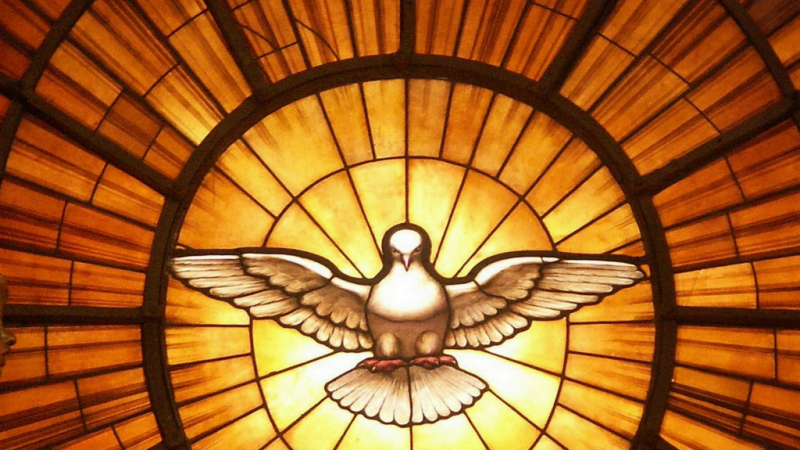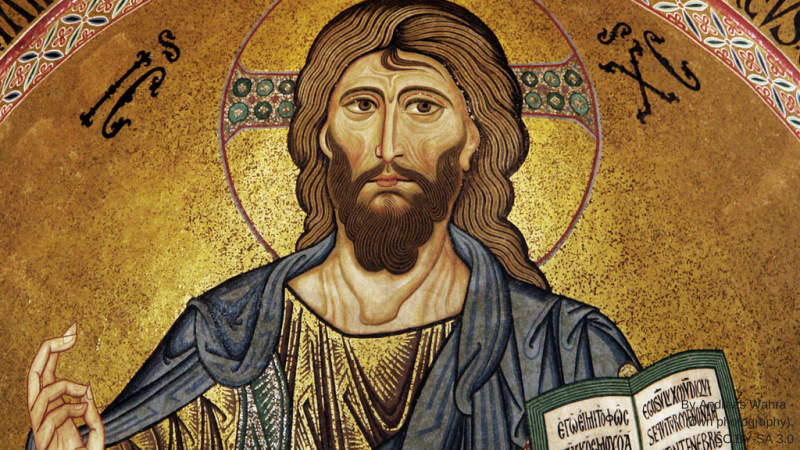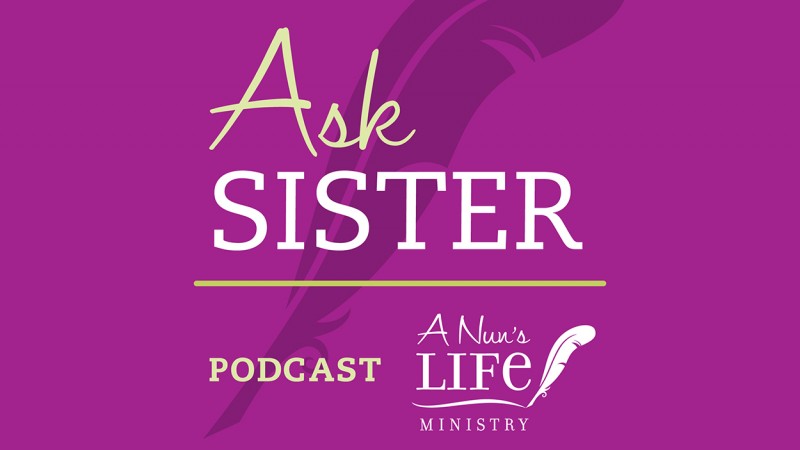Reflect:
“In the beginning God created the heavens and the earth.” (Gen.1:1)
Before anything else existed, there was God. God was not created. God has always been. God’s very name, YHWH, means "I AM", indicating that God always has been and always will be. If we pause to ponder this concept, it is reasonable to believe this about God even though it is impossible for the finite human mind to fully understand an eternal being.
The Catholic Church teaches the doctrine of a triune God: three distinct persons in one God. The first person of the Trinity is the creator God whom we often refer to as God the Father. Out of nothing God created everything that is and will ever be. God continues to create. If God stopped creating everything would cease to exist.
The book of Genesis contains the story of creation out of which we glean how the universe came to be. God created human beings, male and female, in God’s own image. To be created in the image of God means that human beings were created to have some of the attributes of God. Human beings are capable of reason and possess free will. They do not react to situations using only instinct and an inbred reaction to the environment around them as do the other animals. Human beings have the ability to exercise moral choice and to use free will to react to situations they encounter. Free will is an awesome gift, and it is free will that got humankind in a world of trouble.
Everything that God created in the beginning was good. This includes human beings. God required human beings to be faithful to God’s will. This meant that human beings were to put God’s will above their own will. In other words, humankind’s will and God’s will were to be in perfect union. Through disobedience sin entered the world and God’s perfect creation was ruined; but not forever. Because God is all knowing there was already a backup plan in place to save humanity from itself. Fortunately God’s plan for salvation is based on God’s grace, not on human works.
God's covenants with humankind
Because of God’s unconditional love for humankind, God entered into a number of covenants with human beings in an effort to save them from their own disobedience. Covenants by definition are conditional and therefore most, but not all, of the covenants made between God and humankind are based on humankind’s ability to carry out their part of the agreement. God promised our first parents, Adam and Eve, an eternity of happiness in a perfect creation if they remained faithful to God’s will. Sin entered the world because Adam and Eve broke the covenant with God. God continued to make covenants or promises with humankind, four of which were specifically with the nation of Israel. The covenant that God made with Abraham was unconditional. God promised many things to Abraham including that his name would be great and that his descendants would be as numerous as the stars (Genesis 15:5). Abraham believed God and it came to be.
God entered into a conditional covenant with the nation of Israel at Mount Sinai (Exodus 19-24). Through God’s chosen leader Moses, God freed the people from slavery at the hands of the Egyptians and provided for their needs as they journeyed to the Promised Land. At Sinai God gave the “Law” to the people. Through this covenant the nation of Israel would be set apart from all other nations as God’s chosen people. God promised to bless Israel if they are obedient, but if they disobeyed God they would be punished. The Mosaic Law served to point out to the Israeli people their own sinfulness and their need for a savior. The nation of Israel continually sinned against God and suffered greatly because of their disobedience. If the nation of Israel had been faithful to God’s laws they would have avoided the many hardships they ultimately encountered. It is important that we avoid the assumption that law keeping and blind obedience can buy one’s salvation. Salvation is a gift available to humankind through faith in Jesus Christ. In the Old Testament this revelation was still waiting to be born.
The Mosaic Covenant is a significant covenant in both God’s redemptive history and in the history of the nation of Israel through whom God would sovereignly chose to bless the world with God’s written Word and the Living Word, Jesus Christ. It is the Mosaic Law that Christ Himself said that He did not come to abolish but to fulfill. This is an important point because some people get confused by thinking that keeping the Law saved people in the Old Testament, but the Bible is clear that salvation has always been by faith alone, and the promise of salvation by faith that God had made to Abraham as part of the Abrahamic Covenant still remained in effect (Galatians 3:16-18).
What is called the New Covenant was made eventually with all of humankind. Jesus did not come to abolish the Law of Moses (Matthew 5:17) but to bring it to fruition. Under the new covenant everyone is free from the penalty of the law. Forgiveness of sin and reconciliation with God is a free gift to all through faith in Jesus Christ.
Images of God
Sacred scripture teaches us that God the Father is really neither male, nor female, but spirit. We know many attributes of God but the reality of God is mystery; far beyond the ability of the finite human mind to comprehend. One is then led to ponder why God, YHWH, the first person of the trinity is always referred to as Father? We find that this male metaphor for God is used sparingly in the Old Testament, but extensively in the New Testament because it was Jesus’ favorite way of addressing God. There are several reasons for the use of father imagery in the Old Testament. One must first consider that this scripture was written three to four millennia ago at the time when the extensive use of a female metaphor for God would have brought to mind a faulty image of the Divine. During this time in history women were completely without power. They were regarded as little more than chattel. A woman was often used as a bargaining chip when settling land disputes or acquiring livestock. A female image of God used in that era would not bring to mind one capable of protecting the vulnerable or leading a mighty army to victory. This does not mean that there are no female images of God in scripture. The feminine is used when speaking of God as a wisdom figure or as a gentle nurturing mother.
The almost exclusive use of the metaphor Father in the New Testament points to the intimacy of the relationship between Jesus and God. Because Jesus used the Father metaphor for God his followers followed suit. The Father metaphor equates the actions of God with that of a loving and protective father who loves his children unconditionally and watches over them as a good father. The use of the title of father leads one to see God as the creator, the giver of life; all powerful and all knowing. The use of Father does not serve to define God as male, but only to describe the attributes of God and to define the relationship Jesus had with God.
“By calling God “Father,” the language of faith indicates two main things: that God is the first origin of everything and transcendent authority; and that he is at the same time goodness and loving care for all his children, God’s parental tenderness can also be expressed by the image of motherhood, which emphasizes God’s immanence, the intimacy between Creator and creature. The language of faith thus drawn on the human experience also tells us that human parents are fallible and can disfigure the face of fatherhood and motherhood. We ought therefore to recall that God transcends the human distinction between the sexes. He is neither man nor woman, he is God.” (Catechism of the Catholic Church §239)
Consider:
The mystery of Almighty God:
- God created everything and everyone who will ever exist
- God knows each one of us intimately
- God sent us Jesus to bring reconciliation and healing
Today I will send time with the creator of the universe.
Today I will be conscience of God’s creation all around me.
Today I will try to be listen intently to God’s word to me.
Question:
- What other metaphors could you use to describe God?
- How did the sin of Adam and Eve ruin God’s perfect creation?
- Why did God send his beloved Son Jesus into the world?
Pray:
Loving Creator, Eternal God
Lead me through troubled times
And show to me the way I should go.
Help me to remain strong and steadfast in my resolve
To be obedient to You in all things.
Teach me to see You in the your creation
Which is all around me.
Help me to always find time for quiet introspection.
Help me to hear your still, small voice in the silence.
Amen.



